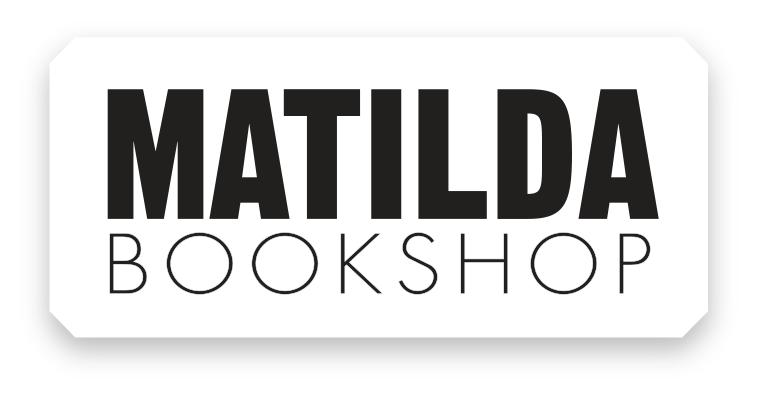
Robert Skinner was born and raised on Kaurna country, in South Australia. His writing appears frequently in The Monthly, and has also been featured in The Best Australian Essays, Best Australian Comedy Writing and Internazionale. He currently lives in Melbourne, where he works in a bookshop and plays football at the lowest level.
1. Why do you tell stories?
Bloody hell, opening with the easy one, huh? Well, I've always liked them. Especially funny ones. Stories are a good way of being more than just a victim of circumstances. If you can find something amidst failures or calamities to connect with other people, then the world becomes a less lonely place. You're no longer a tragic incompetent. You're a goose among geese.
2. Describe I'd Rather Not in one (or two) sentence(s)
It's a rags-to-rags story, in which our hero (me) arrives in the big city, searching for a richer life, only to find the city has other ideas. Hilarity and heartache ensue.
3. All of us here who have read I'd Rather Not have laughed genuinely and loudly while reading it. Do you sit at the desk and consciously shape the source material into a funnier form? How does a satirist operate in a post-satire world of Trump and Sky News
I'm glad! The way to do it is: you cut out everything except the absolutely 100% red-blooded dynamite stuff. And then: Voila!
I have never really thought of myself as a satirist. Probably because I don't like the way a lot of modern satire seems to peddle in "in-jokes", which assume a priori that the other side is stupid and wrong. And that one's own side is right. I don't think I have a side in the book.
A lot of the comedy in I'd Rather Not comes from trying to live meaningfully and truthfully in a world where the prevailing ideologies don't care much for that sort of thing. So these grand attempts are constantly being thwarted by bureaucracies, arts boards, financial mischief, and one's own inadequacies. Even the local beagles, it seems, are pitted against you.
4. Did anything surprise you whilst writing and thinking back on the various periods of your life in this memoir? Did you keep journals or diaries from the parts of your life recounted here?
I have no loyalty at all to the original events/raw materials. I will use them in the service of whatever story/idea I'm interested in at the time, if it fits.
The only time I kept journals was in my twenties, when I was traveling a lot. When I read back over them, I’m constantly frustrated by how little detail there is in them. It’s all hare-brained big-picture stuff. The diary will mention a street corner, or a chaotic bus route, or a woman I met, and then go on, "Which got me thinking ... *insert idiotic theory about sexual relations*" and reading back I think, Tell me about the woman, you clown! (Or the street corner, or the bus route or whatever). You can come up with theories any old time. But to describe what something was like, how it felt...well, sometimes you only get one shot.
5. Have you experienced the particular joy of selling your own book to an unsuspecting customer in the bookshop you work in?
I have! As she tapped her visa card I pointed delicately to the author photo on the back.
She said, "You're right, he does kinda look like you."
6. While you revel in creativity for creativity's sake (or ingenuity, like making $30 catching a mouse for your landlord), you don't shy away from the precarity of Australian writing culture - did writing this book enforce or subvert any of your ideas about the field?
One of the advantages of writing (as opposed to, say, film making), is that you don't need any money to do it. What you need is a pen, paper and some time. It is very difficult to afford a middle-class lifestyle from writing in Australia. I don't have kids or a mortgage, so I can still stomach that. What demoralises the most, I think, is the sense that we are not doing important work. This is hammered into us from the purse-holders on both sides. One side has a barely-concealed contempt for the Arts, and is constantly trying to cut funding etc. The other side's true passion seems to be for Arts administration. But people keep going. It's still possible for writers to find readers. And to find support among other writers, and among our fellows.
7. When and where do you write?
Whenever I run out of reasons not to. Or when I am driven to do so by some sort of frisson/despair/fury.
8. What are three things that sustain you as an author, or while you’re writing?
My family and friends (especially those who work as writers or in other art forms); other books; and the stubborn, tantalising sense that another world is possible, beyond whatever bureaucracy, ideology or economic system is hemming us in.
9. Name three books that you couldn’t live without, or that were crucial to the writing of I'd Rather Not?
Three books that greatly helped me in writing my own book were:
Slow Days, Fast Company by Eve Babitz
Jesus' Son by Denis Johnson
The Carrier Bag Theory of Fiction by Ursula K Le Guin
10. What books are currently on your to be read pile?
I am currently re-reading John Berger essays. And I hear there is another Claire Keegan story out there that I haven't read yet. Plus there are plenty of new and forthcoming books from Australian writers Tony Birch, Jessica Zhan Mei Yu, Peter Polites, Christos Tsiolkas, Amy Crutchfield, Magdalena McGuire...


